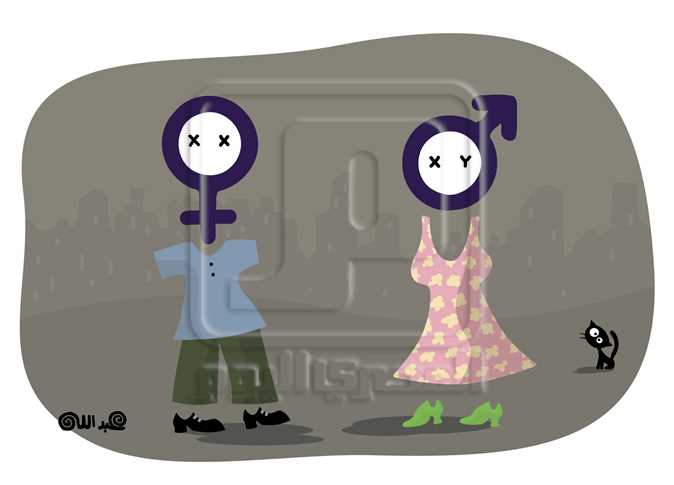The head of the Egyptian Psychiatric Association, Ahmed Okasha, has joined the debate over the legitimacy of sex reassignment operations currently being performed on the 22-yr-old Islam Salah in Assiut.
Salah, who identifies as a woman and now goes by Nour, was not granted permission to have the surgeries by the Egyptian Doctors Syndicate because she did not have ambiguous genitalia. She nevertheless pursued the operation, choosing a doctor in Assiut who would treat her without permission. The doctor refused to give her receipts for the procedures.
“I feel comfortable. I just want my operations to be completed,” she told Al-Masry Al-Youm from her hospital bed. So far, Nour has undergone operations to enlarge her breasts and remove her male organ. A third operation will enlarge her vaginal opening.
“When I decided to deal with the matter on my own, I started going to psychiatrists. They couldn’t help and told me that my case is not psychological but a Gender Identity Disorder.”
Although she was born with male genitalia, Nour revealed to Al-Masry Al-Youm that she has always identified as a woman. This realization in childhood caused Nour to become depressed and more than once attempt suicide.
According to Oshaka, most transsexuals (persons who identify with a gender different from their biological sex) resort to suicide if they fail to undergo sexual reassignment surgery, and that a number will commit suicide if the operation itself is not successful. He added that psychiatric attention is only part of the treatment.
A transsexual’s symptoms begin surfacing during childhood. These issues, if they go unaddressed, become more difficult. Eventually, Okasha believes, a transsexual will make enormous sacrifices in order to become the gender they identify with. For example, opting for a surgery they know will prevent them from having children or normal sex relationships.
Nour’s story is not an exception. Most of Egypt’s surgeons have conducted sex reassignment surgery, although none have been published. Okasha stated that it is widely believed that male to female sex reassignment surgery is much safer and more reliable than female to male surgery. This does not mean that Egyptian surgeons readily accept sex reassignment applicants. Oshaka stressed to Al-Masry Al-Youm that measures must be taken beforehand to ensure the safety and legitimacy of an operation.
Okasha explained, “A patient must undergo a hormonal therapy and live for two years as his target gender. This helps verify that the new life will suit the patient, otherwise he will end up committing suicide. Then comes the psychiatrist’s part. The patient goes through a series of complicated mental tests to reassure that he is not suffering hallucinations, mental detraction, or low intelligence. Next, a transsexual must obtain a certificate from genetic experts proving that his chromosomes do not suffer any sort of disorder.” The last step is to obtain a clearance from the Egyptian Doctors Syndicate.
Okasha laments the reception Nour’s story has had in the media, arguing that, in order for a post-operation transsexual to have a chance at a stable life, these operations must be kept private.
Translated from the Arabic Edition.




